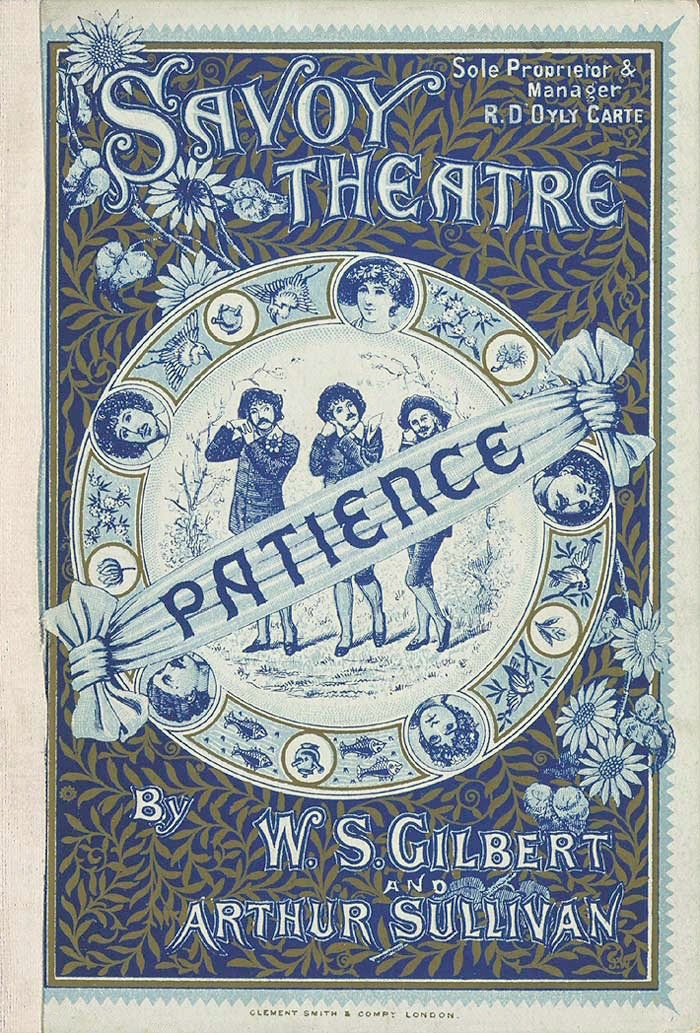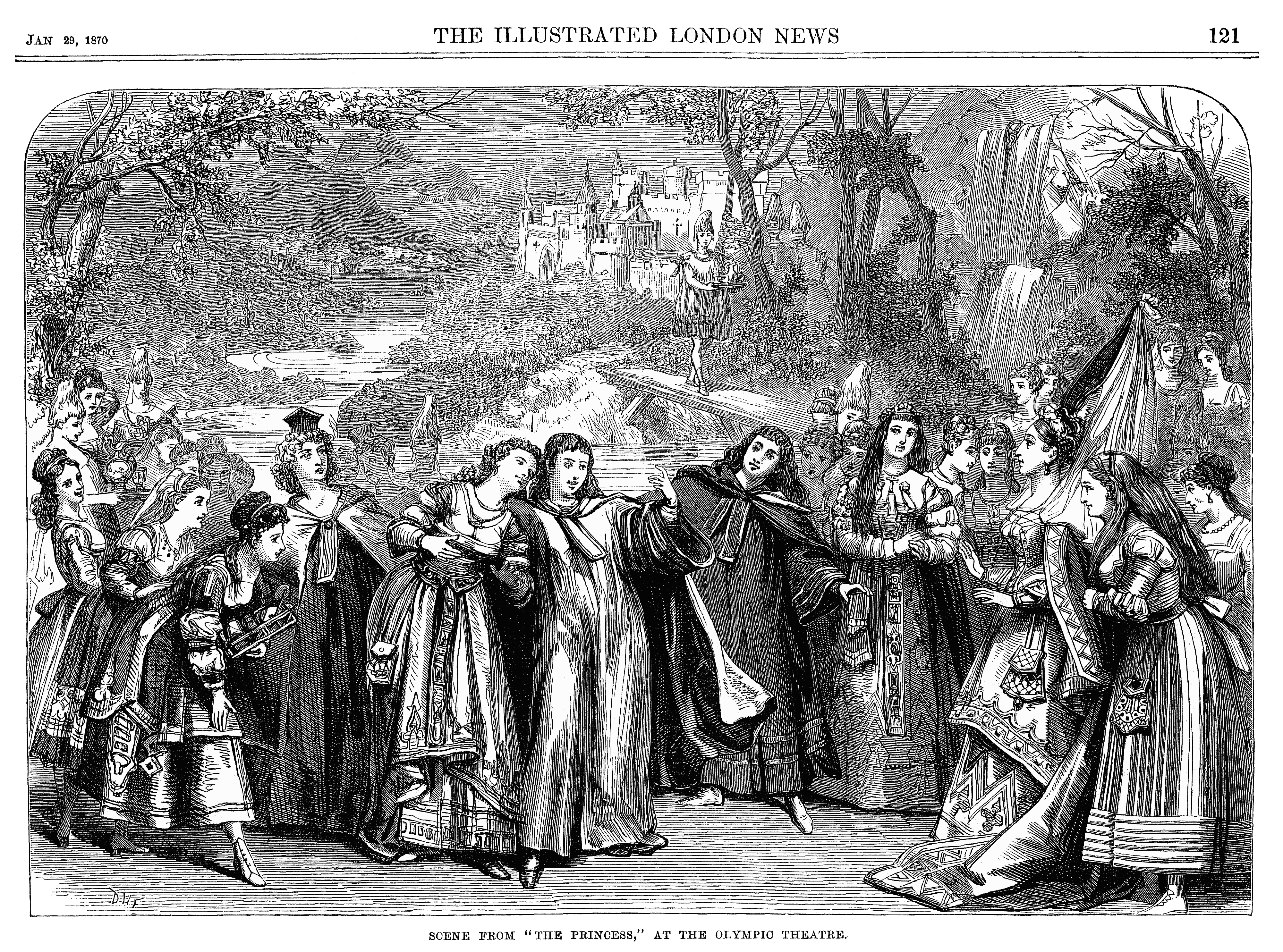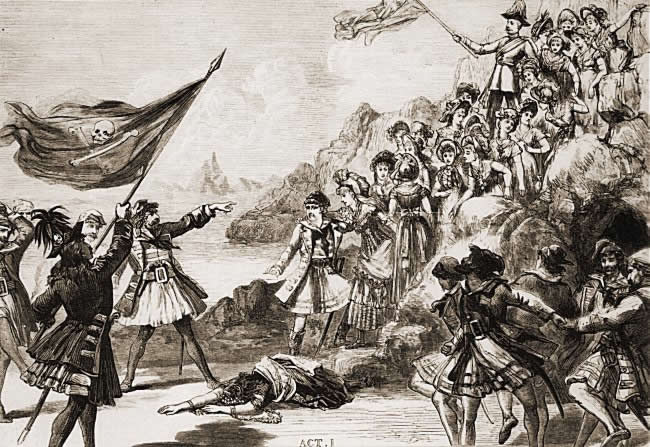|
Clara Dow
Clara Millington Dow (29 December 1883 – 26 March 1969) was an English operatic soprano and actress of the early twentieth century. After a concert career, she appeared at the Savoy Theatre in the first repertory seasons of Gilbert and Sullivan operas mounted by the D'Oyly Carte Opera Company in 1906–09, under the direction of the author. She is remembered as one of the last principal sopranos personally trained by W. S. Gilbert at the Savoy. In between engagements with D'Oyly Carte, Dow performed in concerts and operetta. After her retirement from the professional stage, she directed amateur productions of the Savoy Operas until she was in her seventies. Early life and career Dow was born in King's Lynn, Norfolk.Stone, DavidClara Dow ''Who Was Who in the D'Oyly Carte Opera Company'', 31 May 2002, accessed 18 October 2009 She made her stage debut at the age of 16 in Hunstanton, and went on to study at the Royal College of Music, where she made her London stage debut in ... [...More Info...] [...Related Items...] OR: [Wikipedia] [Google] [Baidu] |
Patience (opera)
''Patience; or, Bunthorne's Bride'', is a comic opera in two acts with music by Arthur Sullivan and libretto by W. S. Gilbert. The opera is a satire on the aesthetic movement of the 1870s and '80s in England and, more broadly, on fads, superficiality, vanity, hypocrisy and pretentiousness; it also satirises romantic love, rural simplicity and military bluster. First performed at the Opera Comique, London, on 23 April 1881, ''Patience'' moved to the 1,292-seat Savoy Theatre on 10 October 1881, where it was the first theatrical production in the world to be lit entirely by electric light. Henceforth, the Gilbert and Sullivan comic operas would be known as the Savoy Operas, and both fans and performers of Gilbert and Sullivan would come to be known as "Savoyards." ''Patience'' was the sixth operatic collaboration of fourteen between Gilbert and Sullivan. It ran for a total of 578 performances, which was seven more than the authors' earlier work, ''H.M.S. Pinafore'', and the seco ... [...More Info...] [...Related Items...] OR: [Wikipedia] [Google] [Baidu] |
Ruddigore
''Ruddigore; or, The Witch's Curse'', originally called ''Ruddygore'', is a comic opera in two acts, with music by Arthur Sullivan and libretto by W. S. Gilbert. It is one of the Savoy Operas and the tenth of fourteen comic operas written together by Gilbert and Sullivan. It was first performed by the D'Oyly Carte Opera Company at the Savoy Theatre in London on 22 January 1887. The first night was not altogether a success, as critics and the audience felt that ''Ruddygore'' (as it was originally spelled) did not measure up to its predecessor, '' The Mikado''. After some changes, including respelling the title, it achieved a run of 288 performances. The piece was profitable, and the reviews were not all bad. For instance, the ''Illustrated London News'' praised the work of both Gilbert and, especially, Sullivan: "Sir Arthur Sullivan has eminently succeeded alike in the expression of refined sentiment and comic humour. In the former respect, the charm of graceful melody pre ... [...More Info...] [...Related Items...] OR: [Wikipedia] [Google] [Baidu] |
The Gramophone
''Gramophone'' is a magazine published monthly in London, devoted to classical music, particularly to reviews of recordings. It was founded in 1923 by the Scottish author Compton Mackenzie who continued to edit the magazine until 1961. It was acquired by Haymarket in 1999. In 2013 the Mark Allen Group became the publisher. The magazine presents the Gramophone Awards each year to the classical recordings which it considers the finest in a variety of categories. On its website ''Gramophone'' claims to be: "The world's authority on classical music since 1923." This used to appear on the front cover of every issue; recent editions have changed the wording to "The world's best classical music reviews." Its circulation, including digital subscribers, was 24,380 in 2014. Listings and the ''Gramophone'' Hall of Fame Apart from the annual Gramophone Classical Music Awards, each month features a dozen recordings as Gramophone Editor's Choice (now Gramophone Choice). Then, in the annua ... [...More Info...] [...Related Items...] OR: [Wikipedia] [Google] [Baidu] |
London Coliseum
The London Coliseum (also known as the Coliseum Theatre) is a theatre in St Martin's Lane, Westminster, built as one of London's largest and most luxurious "family" variety theatres. Opened on 24 December 1904 as the London Coliseum Theatre of Varieties, it was designed by the theatrical architect Frank Matcham for the impresario Oswald Stoll. Their ambition was to build the largest and finest music hall, described as the "people's palace of entertainment" of its age. At the time of construction, the Coliseum was one of the few theatres in Europe to provide lifts for taking patrons to the upper levels of the house, and was the first theatre in England to have a triple revolve installed on its stage. The theatre has 2,359 seats making it the largest theatre in London. After being used for variety shows, musical comedies, and stage plays for many years, then as a cinema screening films in the Cinerama format between 1963 and 1968, the Sadler's Wells Opera Company moved into t ... [...More Info...] [...Related Items...] OR: [Wikipedia] [Google] [Baidu] |
Oscar Straus (composer)
Oscar Nathan Straus (6 March 1870 – 11 January 1954) was a Viennese composer of operettas, film scores, and songs. He also wrote about 500 cabaret songs, chamber music, and orchestral and choral works. His original name was actually Strauss, but for professional purposes he deliberately omitted the final 's'. He wished not to be associated with the musical Strauss family of Vienna. However, he did follow the advice of Johann Strauss II in 1898 about abandoning the prospective lure of writing waltzes for the more lucrative business of writing for the theatre. The son of a Jewish ''Jewish Telegraphic Agency''. 13 January 1954 family, he studied music in Berlin under |
Elsie Spain
Elsie Spain (1879 – 28 May 1970), born Elsie Rickets, was an English opera singer and actress, best known for her performances in soprano roles of the Savoy Operas with the D'Oyly Carte Opera Company from 1908 to 1910 and in operettas and Edwardian musical comedies. She was one of the last leading ladies in the Gilbert and Sullivan roles personally trained by W. S. Gilbert. Among her roles in musicals, she originated the part of Princess Mathilde in the long-running ''The Quaker Girl''. Life and career Early years Spain was born in Reigate, Surrey. She studied at the Guildhall School of Music and Drama, Guildhall School of Music, after which, she began to perform on the concert stage. As an amateur with the Sydenham, London, Sydenham Operatic Society in 1897, she played Theresa in ''The Mountebanks'' by W. S. Gilbert and Alfred Cellier. She made her professional debut in 1907 as understudy to Isabel Jay as Sally in the musical ''Miss Hook of Holland'' at the Prince of Wales's ... [...More Info...] [...Related Items...] OR: [Wikipedia] [Google] [Baidu] |
The Observer
''The Observer'' is a British newspaper published on Sundays. It is a sister paper to ''The Guardian'' and ''The Guardian Weekly'', whose parent company Guardian Media Group Limited acquired it in 1993. First published in 1791, it is the world's oldest Sunday newspaper. History Origins The first issue, published on 4 December 1791 by W.S. Bourne, was the world's first Sunday newspaper. Believing that the paper would be a means of wealth, Bourne instead soon found himself facing debts of nearly £1,600. Though early editions purported editorial independence, Bourne attempted to cut his losses and sell the title to the government. When this failed, Bourne's brother (a wealthy businessman) made an offer to the government, which also refused to buy the paper but agreed to subsidise it in return for influence over its editorial content. As a result, the paper soon took a strong line against radicals such as Thomas Paine, Francis Burdett and Joseph Priestley. 19th century In 180 ... [...More Info...] [...Related Items...] OR: [Wikipedia] [Google] [Baidu] |
The Times
''The Times'' is a British daily national newspaper based in London. It began in 1785 under the title ''The Daily Universal Register'', adopting its current name on 1 January 1788. ''The Times'' and its sister paper ''The Sunday Times'' (founded in 1821) are published by Times Newspapers, since 1981 a subsidiary of News UK, in turn wholly owned by News Corp. ''The Times'' and ''The Sunday Times'', which do not share editorial staff, were founded independently and have only had common ownership since 1966. In general, the political position of ''The Times'' is considered to be centre-right. ''The Times'' is the first newspaper to have borne that name, lending it to numerous other papers around the world, such as ''The Times of India'', ''The New York Times'', and more recently, digital-first publications such as TheTimesBlog.com (Since 2017). In countries where these other titles are popular, the newspaper is often referred to as , or as , although the newspaper is of nationa ... [...More Info...] [...Related Items...] OR: [Wikipedia] [Google] [Baidu] |
The Mikado
''The Mikado; or, The Town of Titipu'' is a comic opera in two acts, with music by Arthur Sullivan and libretto by W. S. Gilbert, their ninth of fourteen Gilbert and Sullivan, operatic collaborations. It opened on 14 March 1885, in London, where it ran at the Savoy Theatre for 672 performances, the second-longest run for any work of musical theatre and one of the longest runs of any theatre piece up to that time.The longest-running piece of musical theatre was the operetta ''Les Cloches de Corneville'', which held the title until ''Dorothy (opera), Dorothy'' opened in 1886, which pushed ''The Mikado'' down to third place. By the end of 1885, it was estimated that, in Europe and America, at least 150 companies were producing the opera.H. L. Mencken, Mencken, H. L.]Article on ''The Mikado'', ''Baltimore Evening Sun'', 29 November 1910 ''The Mikado'' is the most internationally successful Savoy opera and has been especially popular with amateur and school productions. The work has ... [...More Info...] [...Related Items...] OR: [Wikipedia] [Google] [Baidu] |
Princess Ida
''Princess Ida; or, Castle Adamant'' is a comic opera with music by Arthur Sullivan and libretto by W. S. Gilbert. It was their eighth operatic collaboration of fourteen. ''Princess Ida'' opened at the Savoy Theatre on 5 January 1884, for a run of 246 performances. The piece concerns a princess who founds a women's university and teaches that women are superior to men and should rule in their stead. The prince to whom she had been married in infancy sneaks into the university, together with two friends, with the aim of collecting his bride. They disguise themselves as women students, but are discovered, and all soon face a literal war between the sexes. The opera satirizes feminism, women's college, women's education and Charles Darwin, Darwinian evolution, which were controversial topics in conservative Victorian era, Victorian England. ''Princess Ida'' is based on a narrative poem by Alfred, Lord Tennyson called ''The Princess (Tennyson poem), The Princess'' (1847), and Gilb ... [...More Info...] [...Related Items...] OR: [Wikipedia] [Google] [Baidu] |
The Pirates Of Penzance
''The Pirates of Penzance; or, The Slave of Duty'' is a comic opera in two acts, with music by Arthur Sullivan and libretto by W. S. Gilbert, W. S. Gilbert. Its official premiere was at the Fifth Avenue Theatre in New York City on 31 December 1879, where it was well received by both audiences and critics. Its London debut was on 3 April 1880, at the Opera Comique, where it ran for 363 performances. The story concerns Frederic, who, having completed his 21st year, is released from his apprenticeship to a band of tender-hearted pirates. He meets the daughters of Major-General Stanley, including Mabel, and the two young people fall instantly in love. Frederic soon learns, however, that he was born on the 29th of February, and so, technically, he has a birthday only once each leap year. His indenture specifies that he remain apprenticed to the pirates until his "twenty-first birthday", meaning that he must serve for another 63 years. Bound by his own sense of duty, Freder ... [...More Info...] [...Related Items...] OR: [Wikipedia] [Google] [Baidu] |








